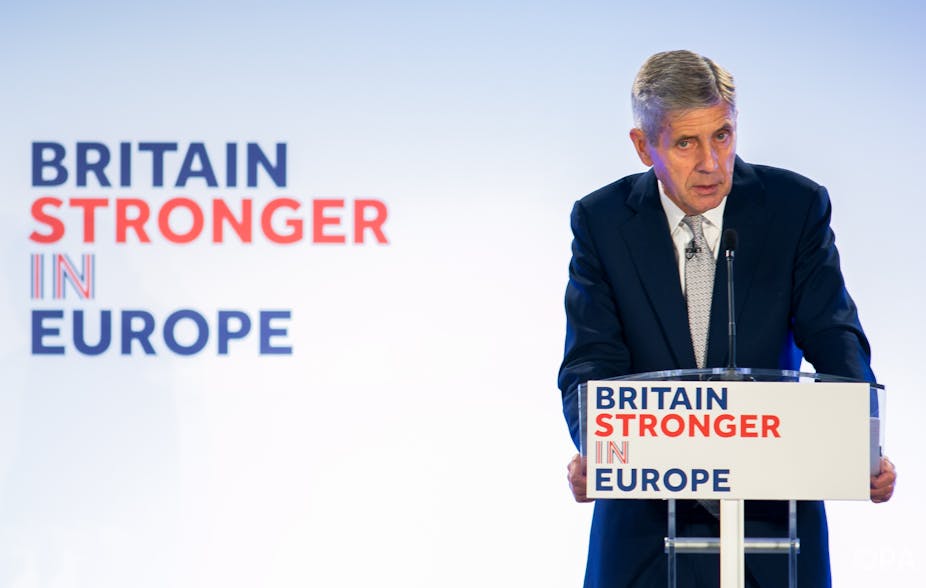The campaign to keep Britain in the European Union was officially launched on October 12. But the grand unveiling in London was entirely lacking in fizz. The idea that Britain will be stronger if it remains in the EU is a good one, but the arguments presented about the benefits of EU membership sounded stale and unconvincing.
With roughly a year to go before the referendum on EU membership, the Remain campaign cannot afford to look so unfocused.
Recent opinion polls suggest that Brexit is a real possibility. An opinion poll conducted in mid-September showed that only 43% of voters want to remain in the EU. Another 40% want to leave, while 17% are still undecided. Another poll indicated that 51% would vote to leave the EU.
More importantly, polling analysis by YouGov has shown that “the obvious arguments in favour of EU membership poll badly when compared to some of the arguments against”. In particular, argues pollster Anthony Wells, “arguments about leaving the EU costing jobs and prosperity are not seen as being as convincing as more straightforward arguments about being able to cut immigration and spend EU contributions on services”.
In this context it will take far more than tired platitudes to convince all those undecided and sceptical voters to vote to stay in the EU. These people have, after all, been fed a daily diet of Europhobic propaganda by the British tabloids for years. The Remain campaign will have to develop a stronger, more energetic and focused approach if it wants to win the referendum on EU membership.

The campaign should be relentless and must be fought on all fronts. By all means, the positive aspects of EU membership should be promoted ad nauseam, but the campaign should use concrete everyday examples of those benefits. There should also be space to discuss and defend ways of reforming the EU.
But even this two-pronged approach will not be enough. People in the pro-EU campaign (in particular its most progressive voices) might have to accept that they need the dark arts of Lynton Crosby to win the battle ahead.
Dark arts
Crosby is known as the king of the negative campaign. He spent much of his career winning elections in Australia but also ran campaigns for Boris Johnson as he fought to become London mayor. Most recently, he led the Conservative party to victory in the 2015 election – although there were significant doubts about his methods throughout.
There are good reasons to be sceptical of Crosby’s methods. The jury is still out on the success of negative campaigns. Politicians and electoral strategists are great believers in their effectiveness but academics are more circumspect. Research suggests that most negative campaigning is counterproductive and that its success depends on the individual characteristics of voters. People with a strong party affiliation and a deep interest in the campaign tend to be more tolerant of negative messages than undecided voters. In short, some voters can be heavily swayed by negative campaigns, while for others the impact is negligible.
If this observation is correct, it may be wise for the Remain campaign to focus on underlining the dangers of Britain leaving the EU – especially considering the larger number of undecided voters.
This fear tactic will be ineffective with the “Leavers” but it has the potential to make an impact over some floating voters. In any case, the fear factor played a role in the referendum on Scottish independence. The uncertainty about the economic prospects of an independent Scotland was sufficient to convince some undecided Scots to vote to maintain the union. And in the 2015 UK election, the Conservatives’ efforts (with the help of Crosby) to present the Labour leader Ed Miliband as someone who would squander Britain’s prosperity and unity also played a role in the Conservative victory.
In a year’s time, these fear tactics may help europhiles to convince sceptical voters that to remain in. So they may want to call Crosby now.

